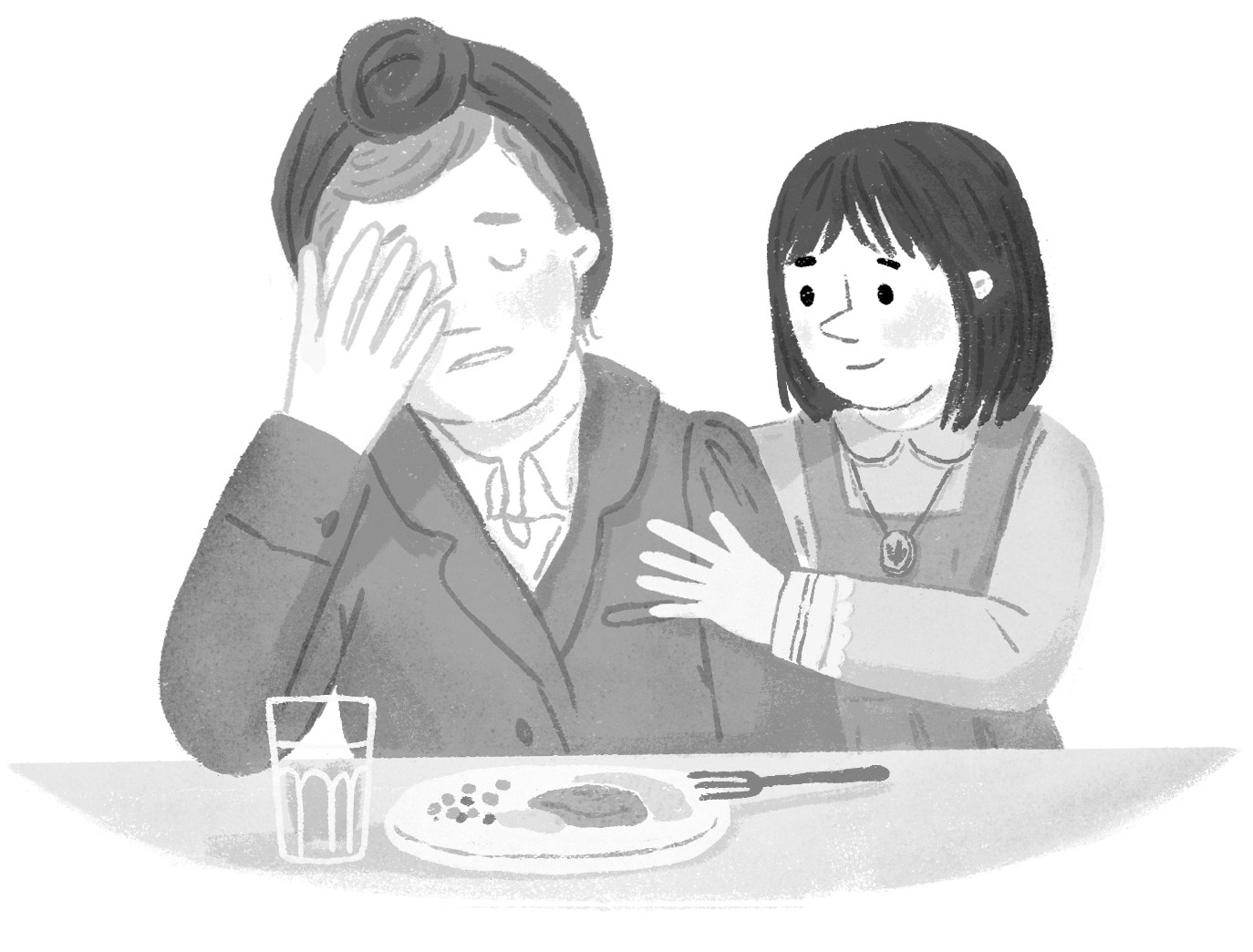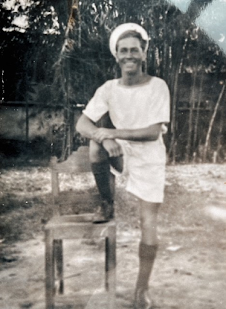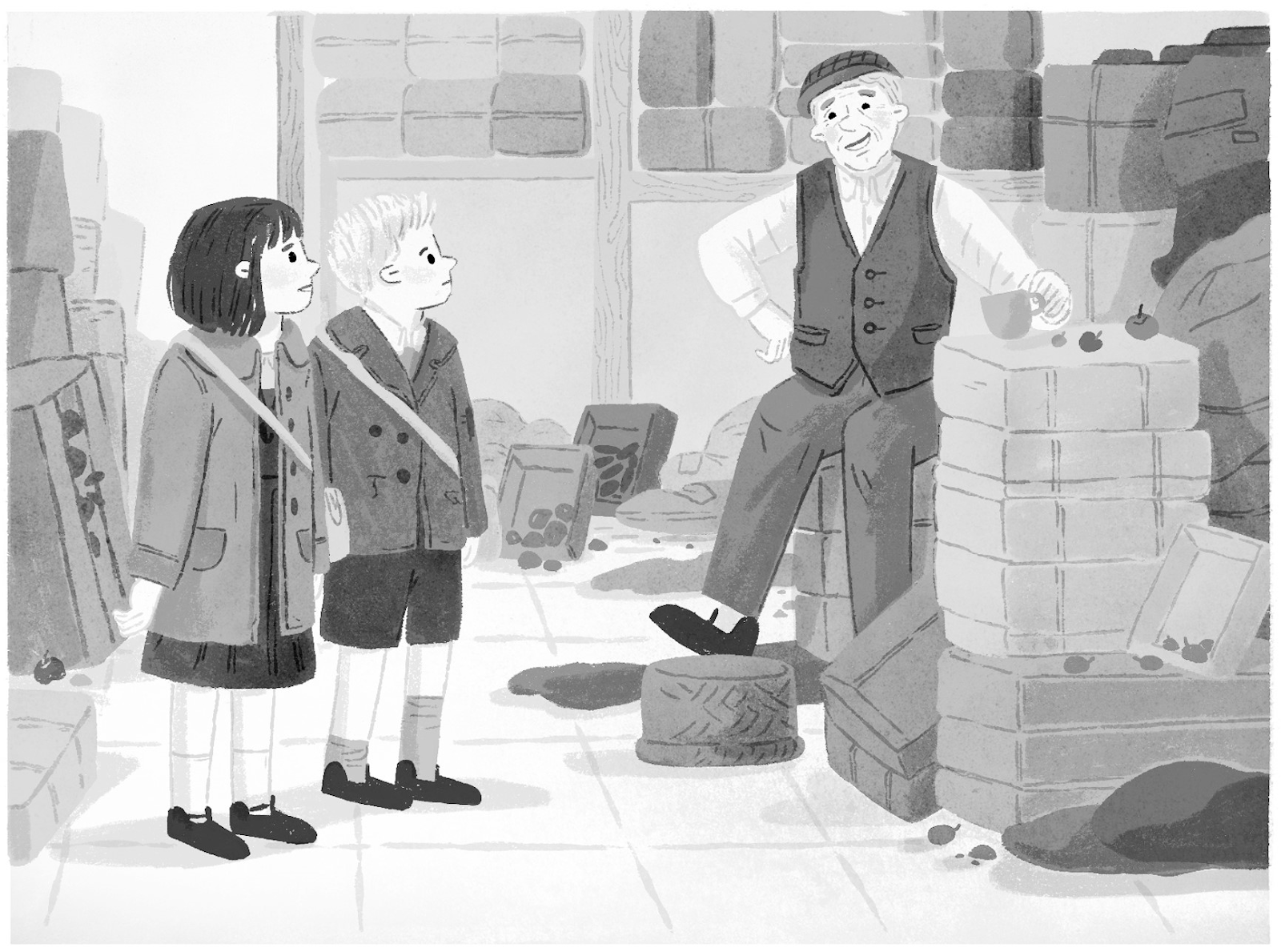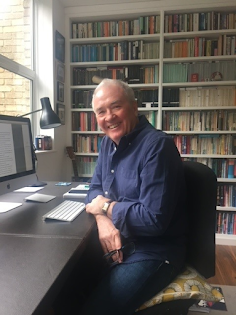The story of how a book comes into existence is often deeply rooted in its author’s life. For me that is particularly true of my book Operation Banana, published by Barrington Stoke. I’ve written a lot of books for them, including several titles set in either the First (Anzac Boys) or Second World War (Bruno and Frida). But with Operation Banana I really did go right back to the sources of my own career.
As the blurb for Operation Banana says, the story is set in the dark days of the Second World War. Its central character Susan is worried about her mum, who is struggling with long hours at a munitions factory and upset because they haven’t heard from Susan’s soldier dad for months. So Susan decides she’s going to cheer up her mum by getting her a treat - a sweet, delicious banana. But everything is in short supply in wartime London, so how on earth is Susan going to find one?
In many ways, Susan’s world was one I felt very familiar with, although I was born nine years after the war, in 1954. Like many people born in those early postwar years, history cast a long shadow over my childhood. My parents were born in the 1920s, and they often talked about living through the most difficult times of the 20th century - the Depression, the rise of Fascism and Communism, the Second World War.
They were in their early teens when the war started, and when it ended they were young adults, both in the Royal Navy. They were Londoners, so they lived through the Blitz and its terrors, and had plenty of stories to tell about those dark days. My Dad was on HMS Belfast and saw action in the North Atlantic and the Far East, and my Mum served in the naval base at Portsmouth during the D-Day landings.
Hearing their stories from an early age played a large part in getting me interested in history. By the time I was in my mid-teens I was a dedicated reader of historical fiction, but also of historical fact. Yet even though I came to know a great deal about the titanic events of the biggest, most destructive war in the history of the human race, because of my parents I always tended to see it from a personal angle.
Adolf Hitler might have wanted to conquer the world, but for my Mum and Dad that simply meant lots of day-to-day misery. If you read the memoirs of people who were children in the war, they remember the big events, but they often talk about basic things too, particularly all the rationing and constantly being hungry. Food is important to children, and in the war most children just didn’t get enough.
Mind you, some did, though. Both my parents talked about another aspect of the war that’s usually overlooked, especially by those who idealise the conflict in Churchillian terms as ‘Our Finest Hour’. For many people it was, but the crime figures soared too. The ‘Black Market’ did a roaring trade, and you could get pretty much anything if you knew the right dodgy geezers and had enough money.
It was also a long war. The story is set at the end of 1942, the mid-point, but as Susan says, at the time nobody knew how much longer it would last. Everyone was exhausted and fed up. Of course it was tough on the soldiers, sailors and airmen who were fighting. But it was hard on the people at home, especially mums with young families. They often had to work hard and take care of their children as well.
All of these things came together when I started writing. I’d realised there had been millions of people like my Mum and Dad, and like Susan and her mum. Ordinary people whose lives were turned upside down by the war, and who struggled to survive, to stay cheerful and help each other get by. They were just as important in winning the war, and that’s why I wanted to tell today’s children their story.
Barrington Stoke have done a great job in designing and producing the book, and it’s been wonderful to work with the illustrator Tania Rex again. Her illustrations have added an extra layer of warmth to the story, and it’s a delight to see how well she has brought Susan and the other characters of wartime London to life.
Operation Banana is dedicated to ‘my Mum and Dad, children of the war’. Sadly they’re long gone, but I like to think they’d be pleased to be remembered. I have a feeling they would both enjoy reading Susan’s tale, and I hope you will too.
WRITING CHALLENGE
Imagine you are a child living in war-torn Britain, and you’re worried about your mum’s state of mind. How would you go about cheering her up? What kinds of obstacles would you face? And just how far would you go to overcome them?
Watch Tony's YouTube video about Operation Banana by clicking here.
Tony Bradman has been involved in the world of children’s books since the Jurassic Age (according to his grandchildren), although he maintains it’s ‘only’ since the 1980s. He has written for all ages, and is best known currently for historical fiction - books such as Viking Boy and Anglo-Saxon Boy (both Walker Books) and Queen of Darkness (Bloomsbury Educational) are very popular in schools. His books have been shortlisted for prizes many times, and he has won the Historical Association Young Quills Award twice, for Anglo-Saxon Boy, and also for Titanic: Death in the Water (Bloomsbury Educational), which he co-wrote with his son Tom.
Tony is also the consultant editor on the highly successful 'Voices' series of diverse middle-grade historical novels published by Scholastic, featuring books by writers such as Bali Rai, Patrice Lawrence, Kereen Getten and Benjamin Zephaniah.
Instagram - tony.bradman











No comments:
Post a Comment